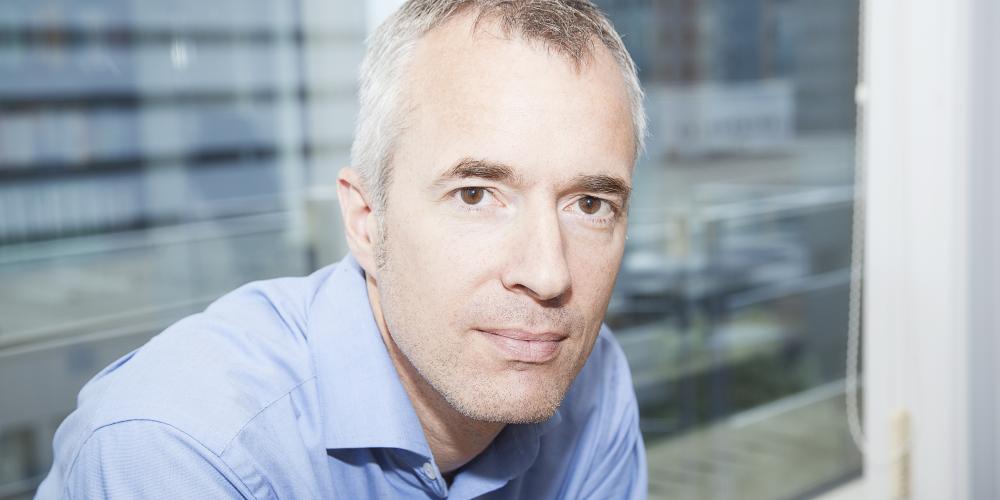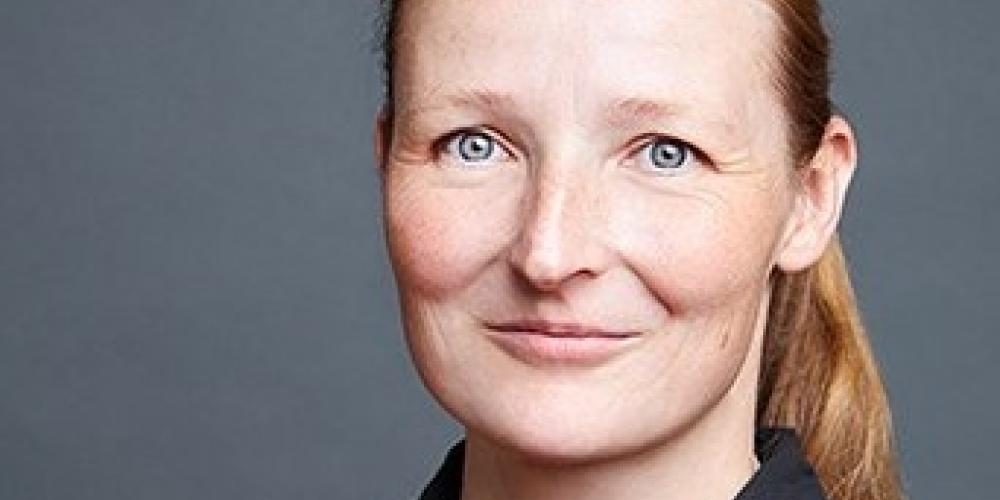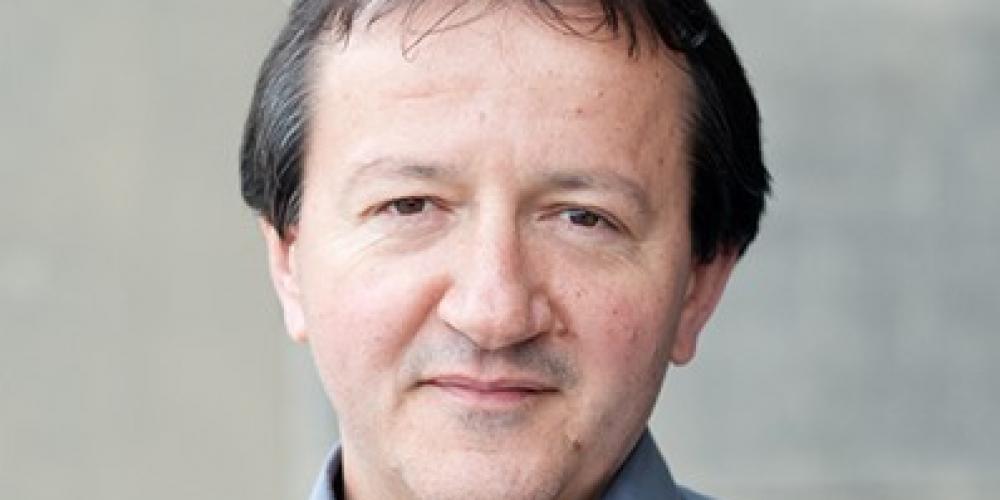Pharma(ceuticals)
Prof. Winter’s research is focused on animal behaviour, especially cognitive performance, e.g. learning ability, memory and their neurobiological foundation for foraging. He carries out behavioural assessments for mice and rats, mostly for preclinical research, to investigate decision-making processes in animals. Lab space is available, inter alia at the Berlin Mouse Clinic for Neurology and Psychiatry (BMC), one of the leading diagnostic institutions within the NeuroCure Cluster of Excellence. Prof. Winter and his team also advise on experimental design and develop automated equipment and systems for behavioural studies on rodents for external laboratories. Another area of his expertise is virtual reality for humans. Here Prof. Winter focuses on the development of a compact, mobile, and immersive virtual reality environment for a wide range of uses.
Behavioural analysis:
- Computer controlled sensor and actuator systems for manipulation and measuring of behaviour
- Modular software system for automated measuring of behaviour
- RFID technology
Virtual reality:
- Immersive 3D-virtual reality system with closed monitoring (octagon)
- Software for rapid implementation of specific VR-applications and interaction scenarios
- Planning and development of a system for automated diagnostics of parameters for motor skills after clinical surgery for a large international pharmaceutical group. 24h recording and measurement as operator independent system.
IT system house
IT product manufacturer
international pharmaceutical company
medium-sized biotechnology company
The research of Prof. Leser and his group is focused on all aspects of management, integration and analysis of heterogeneous, large and distributed data sets including natural language texts (text-mining and information extraction). This encompasses subjects such as data warehouses and ETL, graph databases, deep web and semantic web, machine learning, similarity search, scientific workflows, statistical methods of data analysis as well as methods for assessing and securing data quality. The team of Professor Leser conducts research in a variety of interdisciplinary projects, especially with colleagues from the life sciences covering the range from basic molecular biology to Systems Medicine.
Very good IT-facilities:
- several state-of-the-art parallel computer cluster (20-80 CPUs, 1 TB main memory)
- cluster with 60+ cores
- 50TB+ storage
- For an IT service provider: Consultancy and prototype development in the field of master data standardisation and integration
- For an IT-manufacturer: Development and valuation of algorithms for analysing data quality
- For an international pharmaceutical company: Consultancy and development of text-mining-procedures in biomarker development
- For a medium-sized biotech company: Joint system development (partly funded by the German Federal Ministry for Economic Affairs and Energy) in the field of human genotype changes evaluation
Olympic Centre Berlin (Olympiastützpunkt Berlin)
Professor Legerlotz is head of the Movement Biomechanics research group in the Department of Training and Movement Sciences. The research team focuses on different aspects of tendon adaptation. This includes the adaptation of connective tissues to strain in general and also the emergence, rehabilitation and prevention of tendon injuries in particular. Current research analyses the effect of changing hormone levels on the mechanical properties of the female tendon and training interventions that are used to treat athletes with tendinopathy.
The departments offers three large laboratories with modern sports science equipment:
- Motion Analysis Laboratory with a VICON system including twelve cameras and three AMTI force plates. Both the foundations of the force platforms as well as the camera mounts are decoupled from the sports ground of the laboratory to prevent the transmission of vibrations.
- Force Diagnostic Laboratory with DAVID and Technogym strength diagnostics equipment for all major muscle groups
- EMG laboratory with a Biodex System-3 and an Esaote ultrasound machine, which is used to study the muscle-tendon plasticity. To control the joint angle at the Biodex camera, mounts are available for installing eight VICON cameras. A large LCD-Screen provides the possibility for biofeedback.
All labs are air-conditioned and are equipped with an uninterruptible power supply and complete darkening.
Various projects with Olympic Centre Berlin (Olympiastützpunkt Berlin), from training adaptation to injury prophylaxis
The structure research and electron microscopy group at the HU of Berlin actively develops and applies a broad spectrum of techniques for the analysis of small volumes of material by transmission electron microscopy (TEM), scanning transmission electron microscopy (STEM), scanning electron microscopy (SEM), and also light microscopy. Know-how which we can offer to external partners is based on the development of radically new electron diffraction techniques for ab-initio determination of atomic structure in (nano-) crystalline materials, and also the development of inline holographic techniques for the TEM as well as the optical microscope. The inline holographic techniques developed within the group are applied in the TEM for mapping electrostatic potentials, charge density distributions, and also strain in semiconductors and ceramics. In the optical microscope we apply these techniques for quantitative phase microscopy of living cells or mapping the topography of surfaces with nm resolution along the optical axis.
Transmission electron microscopes:
- JEOL JEM2200FS FEG-(S)TEM equipped with an in-column energy filter for electron energy-loss spectroscopy, HAADF- and BF-STEM detectors, EDX spectrometer for local elemental analysis, NanoMegas ASTAR precession unit for phase mapping and electron crystallography, electrostatic biprism for off-axis holography, Instrument control software for Large-Angle Rocking-Beam Electron Diffraction (LARBED)
- Hitachi H-8110 (S)TEM with LaB6 cathode, equipped with HAADF- and BF-STEM detectors
Scanning electron microscope:
- Zeiss GeminiSEM 500 with a field-emission source, equipped with a multi-segment STEM detector, an EDX-Spectrometer, and an E-beam lithography unit (RAITH-Elphy)
- Within a cooperation agreement with a leading provider of optical products, Prof. Koch has developed novel techniques for analysing series of images.
Prof. Dobbek analyses the biochemical principles of bacterial growth on substrates, i.e. carbon dioxide, carbon monoxide as well as aromatic compounds, which also are pollutants. The main focus lies on the functional and structural investigation of metalliferous enzymes that transform unreactive molecules in oxygen free conditions and thus enable bacteria to grow in a seemingly hostile environment. Developing new (biological) catalysts capable of energy-efficiently transforming carbon dioxide and monoxide is Prof. Dobbek’s goal. Moreover these catalysts are designed to generate new enzymes for the biological decomposition of substances damaging to humans and the environment.
- production of proteins under aerobic and anaerobic conditions (FPLC and HPLC procedures)
- robotic protein crystallization under standard conditions and in oxygen free conditions (glovebox technique)
- crystallographic structural analysis of proteins
- general methods in the field of structural bioinformatics
- methods to examine enzymatic processes, e.g. fast mixing methods (stopped-flow spectroscopy under aerobic and anaerobic conditions), analyses using HPLC, GC-MS, UV/Vis- and fluorescence spectroscopy, isothermal titration calorimetry under aerobic conditions
Prof. Grimm and his team mainly investigate the metabolic control of tetrapyrrole biosynthesis and photosynthesis. They also do research on the regulation of sucrose transport in plants. The plant science team is interested in studying the unique properties and functions of plant cells, such as intracellular communication between the nucleus and the two main plant organelles, plastids and mitochondria. Prof. Grimm’s group applies several experimental methods and techniques from the areas of biochemistry, genetics, molecular and cell biology in their research and in the training programs for students and young academics.
The Plant Physiology group provides all necessary equipment and instrumentation for plant growth and molecular genetics, biochemical and physiological work:
- S1 greenhouse
- growth cabinets for Arabidopsis
- radionuclide laboratory
- HPLC equipped with diode array and fluorescence detector
- FPLC
- fluorescence spectrometer
- microtiter plate reader (w/ fluorescence detection)
- UV/Vis photometer • PAM-2000 fluorometer
- LI-COR photosynthesis device
- fluorescence microscope
- ultracentrifuges and high speed centrifuges including rotors
- clean benches
- incubators for growth of genetically modified bacteria and yeast
- several PCR machines, e.g. microplate readers and PCR light cycler
- confocal laser scanning microscope (CLSM)
- Oil mills: pigments in rapeseed oil
- Food-producing corporation: postharvesting treatment and storage of leafy greens
- Pharmaceutical group: vitamin synthesis and content in plants
zebris Medical GmbH, myon AG, Simi Reality Motion Systems GmbH
Prof. Arampatzis and his Department of Training and Movement Sciences are dealing with the interaction of the neural and musculoskeletal system in research and teaching. Of special interest for Prof. Arampatzis is the adaptation of the neural and musculoskeletal system by mechanical stress and its influence on human performance as well as motor control and motion security. Through an integrative approach of biomechanics, physiology and neuroscience, consequences for athletes and for people with degenerative changes of the neural and musculosceletal systems will be deduced. The main research focus of the department is on quantifying and changing the neuro-biomechanical potential of humans and on the investigation of its influence on the mobility in everyday life and sports. Considering this, the department also investigates the role of sports activities in order to prevent accidents and to preserve the quality of life for the elderly and people with chronic diseases.
The departments offers three large laboratories with modern sports science equipment:
- Motion Analysis Laboratory with a VICON system including twelve cameras and three AMTI force plates. Both the foundations of the force platforms as well as the camera mounts are decoupled from the sports ground of the laboratory to prevent the transmission of vibrations.
- Force Diagnostic Laboratory with DAVID and Technogym strength diagnostics equipment for all major muscle groups
- EMG laboratory with a Biodex System-3 and an Esaote ultrasound machine, which is used to study the muscle-tendon plasticity. To control the joint angle at the Biodex camera, mounts are available for installing eight VICON cameras. A large LCD-Screen provides the possibility for biofeedback. All labs are air-conditioned and are equipped with an uninterruptible power supply and complete darkening.
- zebris Medical GmbH: evaluation of pressure distribution measurements in treadmills
- myon AG: evaluation of a wireless electromyography system aiming to quantify muscle activation
- Simi Reality Motion Systems GmbH: evaluation of a 3D motion capture system designed to analyse complex human movements






